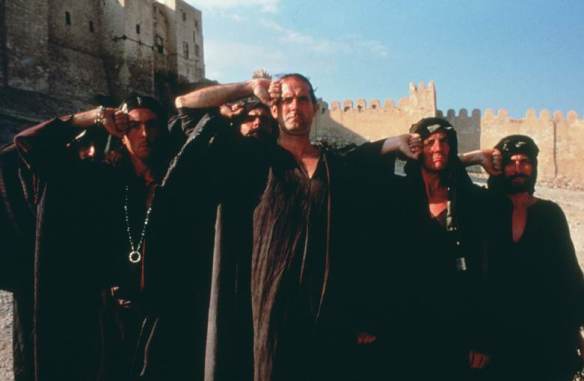The average American parishioner is more faithful to the Democratic and Republican platforms than the Credo. Alasdair MacIntyre pithily noted this (classical) liberal creep in his classic Whose Justice? Which Rationality?:
“Liberalism is often successful in preempting the debate . . . so that [objections to it] appear to have become debates within liberalism. . . . So-called conservatism and so-called radicalism in these contemporary guises are in general mere stalking-horses for liberalism: The contemporary debates within modern political systems are almost exclusively between conservative liberals, liberal liberals, and radical liberals. There is little place in such political systems for the criticism of the system itself, that is, for putting liberalism in question.”
If you want proof the unity of opposites (on the classical liberal spectrum) then go no further than the recent ecclesiological suggestions of Ross Douthat and Anthony Paul Smith.
First, pay careful attention to the wording of Smith’s latest bit of writing for a general audience:
“To simplify the big and messy thing called Catholicism, let us just talk about one major split: between the official church leaders charged with safeguarding its teaching and the estimated 1.2 billion everyday believers around the world.”
Now compare this with the takeaway from Douthat’s February takedown of the Neuhaus Catholic Moment:
“Nothing that happens in Rome over the next few months is likely to convert the Acela Corridor’s donors and strategists and think tankers to a more Catholic-friendly worldview. The next pope may be more effective than Benedict, or he may be clumsier; he may improve the church’s image in this country, or he may worsen it.
But if there is another Catholic moment waiting in our nation’s future, it can only be made by Americans themselves.”
Are we seriously supposed to entertain the possibility that a fight where the laity slays the hierarchy is the only tactically viable maneuver for the Catholic Church?! This sounds like suicide through competition to me. It echoes the fight between the People’s Front of Judea against the Judean People’s Front in Monty Python’s “Life of Brian.” The film is a comedy for those of you who missed it.
Michael Sean Winters, in a recent repost of a long-lost article, proposes the work of David Schindler as one possible way to do an end-around the whole classical liberal Hydra represented by Smith and Douthat:
“The usual view of contemporary Catholic theology sees two camps the liberals who succeeded in opening the Church to the world at Vatican II and who have been in decline in the era of John Paul II, and the conservatives who think the Church went too far in the 1960s to accommodate the world, and support what they see as John Paul’s restorationist program. Schindler argues for (if you’ll pardon the expression) a third way. In his analysis, the liberals want more accommodation with the world and conservatives want less accommodation with the world, but they are still arguing about the rules of engagement. And both fail to appreciate the radicalness of the scriptural claim that ‘in [Jesus] everything in heaven and on earth was created.’
For Schindler, the Christian must always consider the claims of faith first, and those claims extend to the entirety of his or her life. Classical liberalism claims that in the realms of the ontological and the sectarian, the polity has no preference: a Christian is free to pursue his faith and any citizen can make whatever truth claims about the universe that he wishes. To use Murray’s distinction, the Bill of Rights are not ‘articles of faith’ but ‘articles of peace.’ But, Schindler asks, are there not truth claims, religious truth claims, already implicit in this putatively ‘neutral’ state?
Specifically, Schindler argues that Thomistic dualism is the sine qua non of liberal political regimes and, therefore, the neutrality of the liberal state is a sham. Murray’s “articles of peace” formulation assumes a logical priority for freedom before truth, and inevitably issues in a ‘privatization’ of religion. Since the Church is prevented from approaching the world ‘as Church’ (welcome, but please leave your dogma at the door!) it is reduced to the role of an ethical authority. This role, in turn, shapes the Church’s self-understanding so that what results is not only the secularization of society that the neo-conservatives decry, but also the secularization of religion itself. Being ‘Christian’ is reduced to being kind.”
Working out his project seems to be the only viable alternative to this:




